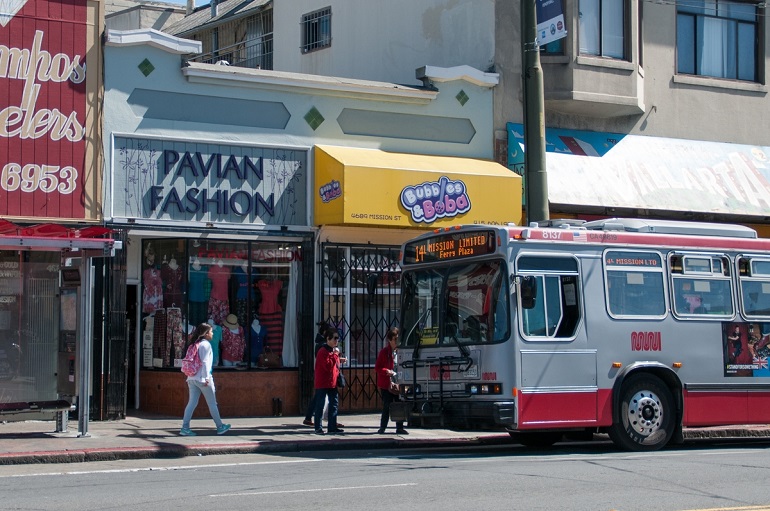Why Muni Sometimes Doesn’t Stop

It’s a dreadful feeling — you’re waiting at a bus stop, and when your bus finally shows up, it doesn’t stop to pick you up. Just when you expected the wait to be over, you’ve got to start it all over again.
Muni works hard to eliminate incidents known as “pass-ups,” which every transit system grapples with. However, many of these cases may have reasons behind them that may not be evident to waiting customers who are left behind. While Muni continues to tackle the issue whenever possible, we wrote this post to help shed some light and build more understanding.
We know that when Muni riders invest their time waiting for a bus or train, they place their trust in the reliability of the system to get them where they’re going — at the time they planned.
We always emphasize that any customer who experiences a pass-up should file a complaint via 311 and include any known details such as the time, location, line, and four-digit vehicle number.
Providing feedback via 311 helps Muni track and investigate these incidents, as well as follow up with the person who filed the complaint. Complaints are then passed on to management staff at the appropriate Muni divisions, who determine what action needs to be taken.
Investigating a complaint through 311 gives us the opportunity to determine if there are possible reasons to explain a pass-up. Below are some of the factors that must be taken into account.
- Full vehicles: The vehicle may have been full and unable to take on more passengers. When this happens, operators will call in to report the full vehicle and the need to skip stops. In these cases, the operator will generally only make requested stops for passengers to get off. In some cases, however, a vehicle may be crowded only in the front, and an operator may not be able to see room available behind the crowd.
- Balancing service: Operators are often ordered to skip stops to even out service when vehicles become bunched up. Stop skipping is a common transit service management tool used to even out service when another vehicle on the same route is close behind. In these cases, operators are still expected to make all stops requested by passengers. When passing a stop, operators may gesture (if safe to do so) to waiting passengers with a wave or honk to indicate that they should expect another vehicle to arrive soon.
- Stops not served by “Rapid” service vehicles: Muni vehicles with signs marked with an “R” are part of our network of “Rapid” routes, which save time by serving fewer stops than their regular counterparts. Be sure to double check that the route indicated on the sign of an approaching bus matches those marked at your stop (i.e., 5 Fulton vs. 5R Fulton Rapid).
- Operators only stop once: Once an operator closes a vehicle’s doors and departs a stop, safety reasons generally prohibit them from stopping the vehicle and opening their doors a second time.
- Sign malfunction: While operators are expected to ensure that their vehicle’s “headsign” displays the proper route and destination, in some cases the signs may fail without the operator’s knowledge. Any vehicle which is “not in service” should be indicated on its headsign.
If it's not clear why the pass-up occurred, please report it to us via 311 so we can better understand and correct the issue. You can also tweet to us @sfmta_muni during staffed hours, and we may be able to respond with a reason for an apparent pass-up in real-time.
We’re as grateful to our customers for riding Muni as we are to our operators for moving San Franciscans in a safe and efficient manner every day. Unfortunately, the complexity of running a transit system on city streets often remains behind the scenes to customers. While we know that explanations alone won’t make your trip faster or more reliable, we believe that effective communication with our customers is crucial to making Muni the best system it can be.
